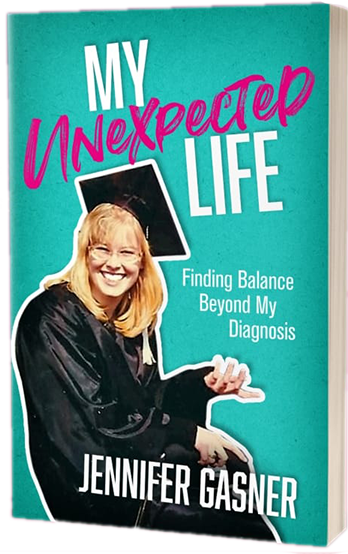I have been re-reading my posts, and I wonder if I am being truly authentic. I know I am truthful. I am proud to be disabled, annoyed by the views people have of people with disabilities, and have shared some of the frustration that happens with Friedreich’s ataxia. But it feels very surface like I’m not going deep enough.
I’m going to explore this topic a bit.
Authenticity is a buzzword of sorts to me. When I was growing up in the ’80s and ’90s, I don’t remember the word being used in any context other than verifying a work of art as an “authentic” piece. But now, it’s an adjective referring to how real and genuine a person is to who they are and what is going on in their lives.
As a Gen X’er who isn’t as good at expressing feelings as Millenials or Gen Z, I still have to work at revealing my reality. In addition, I feel the need to consider the effects of my words on people with disabilities, and that adds a layer of backdrop to my stories.
I want people to know what living with FA is like, but I don’t want to invoke pity. It is frustrating and can spur on tears. But just because my life is different doesn’t mean it is tragic.
I do not want people to feel sorry for disabled people in general and me. Being able to walk does not mean your life is horrible. Being a wheelchair user doesn’t mean you stay at home feeling sorry for yourself.
My own journey of acceptance will be conveyed in my upcoming memoir, My Unexpected Life: Finding Balance Beyond My Diagnosis. It didn’t happen overnight, and it’s an ever-evolving process. I am sure I still have ableist thoughts, use ableist language, and can be insensitive.
In the writing I’ve done for my memoir, I am very forthcoming and have been told I do not make people feel bad for me. I could do the same on the blog, but something is holding me back from talking about the difficulties of living with FA. I’m unsure what is, but I hope to continue searching, learning, and creating.
Until the next…


Recent Comments